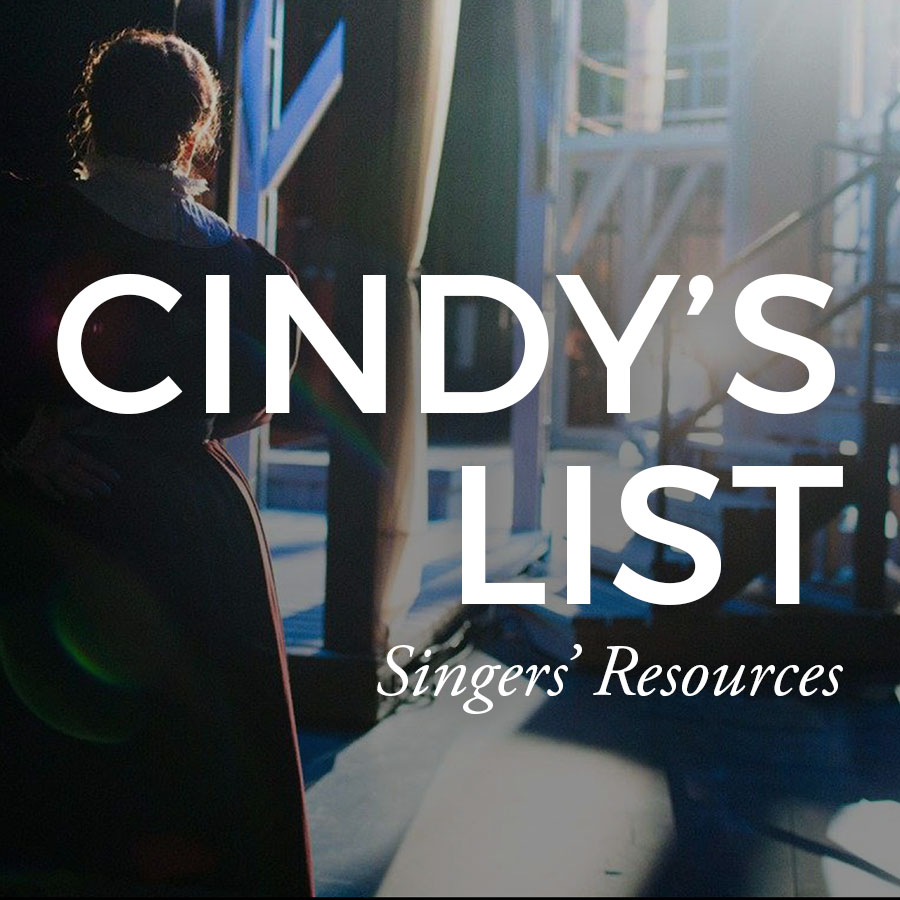One of the things I talk about a LOT in my workshops for singers is taking ownership of your education, your career, your art. As Kimberly noted in the comments section of the last post, many students aren't ever taught to think outside the box and in fact are discouraged from doing so. But at some point, you have to break out of the chrysalis and take control of your life; or you'll never fly very high or very far.
And that is one reason I tell young singers that they must take ownership. Because some of them need to be told; and others just need to be given permission and guidance.
I never, ever suggest that I have all the answers. As my beloved and wise teacher Mignon Dunn always said, "Schatzie, my mouth is not a prayer book and my words are not written in stone!" The best you can do for young singers, I think, is to try to give them a place to start asking questions, a place to start looking for answers.
This is one of the jumping-off places I offer to performance career oriented university students in my workshops:
Ten Things to Do Before You Graduate
1. Set specific goals for your study.
2. As soon as you are ready, spend as many of your summers as possible participating in reputable training programs.
3. Sing or at least learn full roles.
4. At the end of every school year (or every semester), give yourself, your school, and your teachers a “report card”.
5. Do a few reputable competitions.
6. Do a lot of research.
7. Make sure your materials are prepared (resume, bio, headshot, reviews, sound clips, cover letter).
8. Start a database of industry contacts.
9. Prepare your top ten arias for auditions.
10. Before you enter the final year of your studies, you should have developed a five year plan.
Naturally, I go into a lot more detail than that, but we'll save that for the workshop. ;) However, in the context of the conversation we've been having about music students and the state of the educational system, it never fails to amaze me how novel some of these ideas are to the students. Most of them are getting little to NO formal guidance in how to take all this technique and theory and language and style and stagecraft they are (hopefully) learning, and turn it into a career. They get no guidance on branding, marketing, or even when and where and how to find auditions or get an agent.
That's why I started my workshops in the first place.I do get booked by universities, but it's often a hard sell unless I have a connection there already. I did one at my alma mater a few years ago -- not strictly for the singers, but for a sort of general business class for musicians. I remarked to the teacher, who had been one of my professors back in the day, that I sure wished we'd had this when I was in school. "We did!" she said, surprised.
I had never heard of it, never seen it in the course catalogue, never had it mentioned to me by any professor.
Often when I teach at universities, I make reference to the Musical America directory, Opera America and its many publications and resources, Classical Singer Magazine (I'm a contributor), the Deutsches Buehnen Jahrbuch, and many, many useful websites and other resources. I always ask for a show of hands to see how many people have even heard of these publications. Sometimes there are one or two people who do. Once, one of the teachers who was sitting in actually said, "Oh, yeah, Musical America. We have that in the library." But she had never mentioned it to her students!
And I don't mean to stick it to voice teachers (I am one, after all), because we all know that one teacher cannot be responsible for the whole of a student's education. Also, we all know that you can say a thing forty-seven bajillion times, write it in triplicate on the syllabus and make the student sign off on it, post in on your office door in sparkly LED lights and glitter ... and 8 out of 10 students are still going to say "Huh?" when you mention it. (Or worse, some shiny famous teacher will say it in a master class and all your kids will act like Maria Callas just came down from heaven and farted perfumed pearls of wisdom that no one has ever said to them before or since. Never mind that you have said it every.single.day. and have a tattoo of it on your upper lip).
The point is, there is a glorification of mediocrity and minimal effort in this country which is ingrained in us, and from which it is very hard to break away. But we must. There are many, many valid paths to a career (or a hobby) in music, but if you want to be a performer, you must be driven. You must be endlessly curious. You must not be afraid to assert your individuality while still learning the rules of the game.
It's not enough to want. You have to actively seek.









